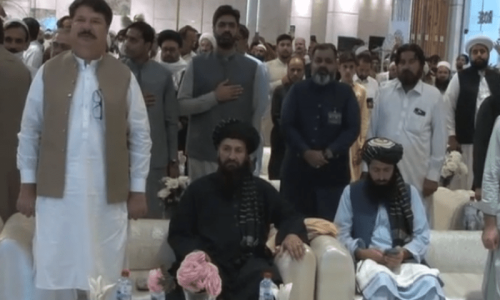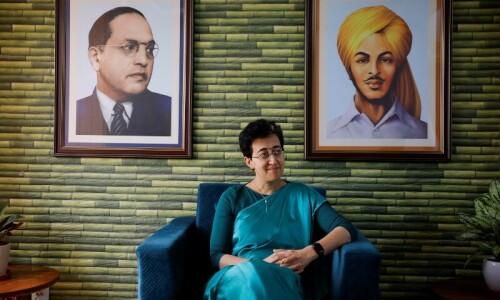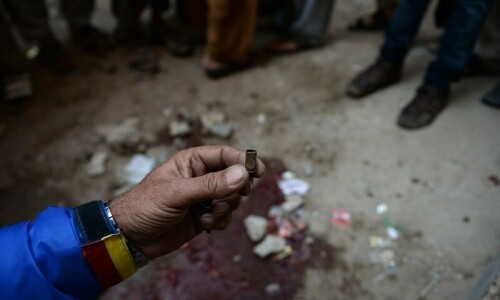ANKARA: Ayse Sekerci was set to go to university this year, free at last to wear her headscarf.
Then the party that championed her cause landed up in court, and covered women fear their campaign will be set back a generation.
Turkey’s parliament, controlled by the AK Party, passed a constitutional change in February to allow students to wear headscarves at university. That riled a secularist establishment made up of judges, generals and university rectors, who see the scarf as a symbol of political Islam, in which the AK Party has its roots.
Turkey is 99 per cent Muslim, but the republic was founded as a secular state by Mustafa Kemal Ataturk in 1923 from the crumbling Islam-based Ottoman Empire.
Last month, a prosecutor launched a case to close down the AK party for anti-secular activities. His indictment is packed with references to the headscarf, while a separate case filed at the same court challenges the headscarf reform itself.
The AK Party denies the charges and says the closure case is politically motivated.
Headscarf-wearing women say the outlook is grim, with many predicting the Constitional Court, a bastion of secularism which has ruled against the AK Party in the past, will do so again. If it does, commentators and activists say devout women face a long wait before any party tackles the headscarf issue anew.
Twenty-year-old Sekerci has already decided that rather than not study, she will wear a wig to cover her hair at university.
But after graduating, she says she would prefer not to work than to do so without her headscarf.
“Everyone was hopeful. I thought I would be able to study in the way that my religion requires,” Sekerci, wearing a knee-length dress over jeans and a silky black scarf, told Reuters. “It really seemed that this time it would happen. But after the recent events, all my hope has been destroyed.”
The headscarf debate goes to the very heart of Turkey’s complex identity. The country is a young democracy struggling to balance the demands of an increasingly prosperous but pious population and a traditionally pro-Western elite which sees any sign of Islam in public life as a threat.
SET BACK: The AK Party, which had long spoken of trying to lift the headscarf ban, finally pushed it through parliament after being re-elected last year with 47 per cent of the vote. The change also had the backing of an opposition party.
Some fear that if an attempt even in such favourable conditions fails or leads to the party’s closure it will be years before anyone dares raise the issue again.
“I think if the AK Party is closed down, we will have 10 to 15 more years of struggle to normalise these issues,” said Neslihan Akbulut, who heads activist group AKDER and now plans to go abroad for her doctorate, as she did for her first degree.
“If the party is closed and a new party appears, of course they will be afraid of even talking about religious freedom ... Every 10 years we see the same picture,” said Akbulut, referring to a bloodless coup in 1997 when a government perceived as too Islamist was pushed from office by the army with public backing.
Thousands of women have not gone to university because of the ban, enforced strictly since 1997, or have studied abroad.
Merve Kavakci, thrown out of parliament in 1999 for trying to take her lawmaker’s oath wearing a headscarf, agreed the issue could fall off the agenda. She said any hope lies in early elections or in women launching their own aggressive campaigns.—Reuters














































Dear visitor, the comments section is undergoing an overhaul and will return soon.